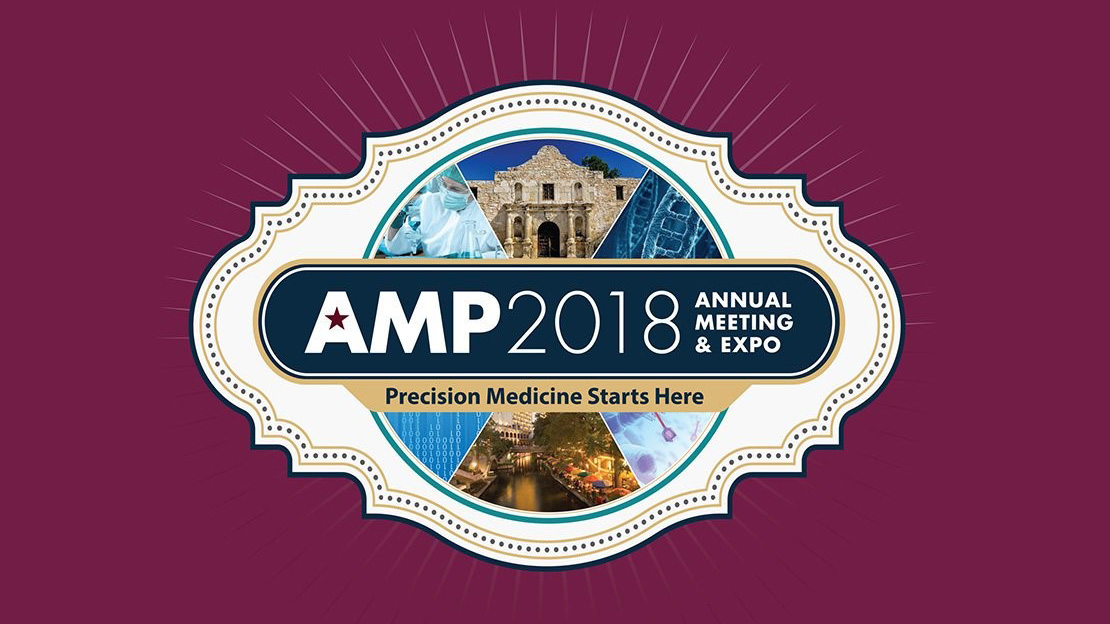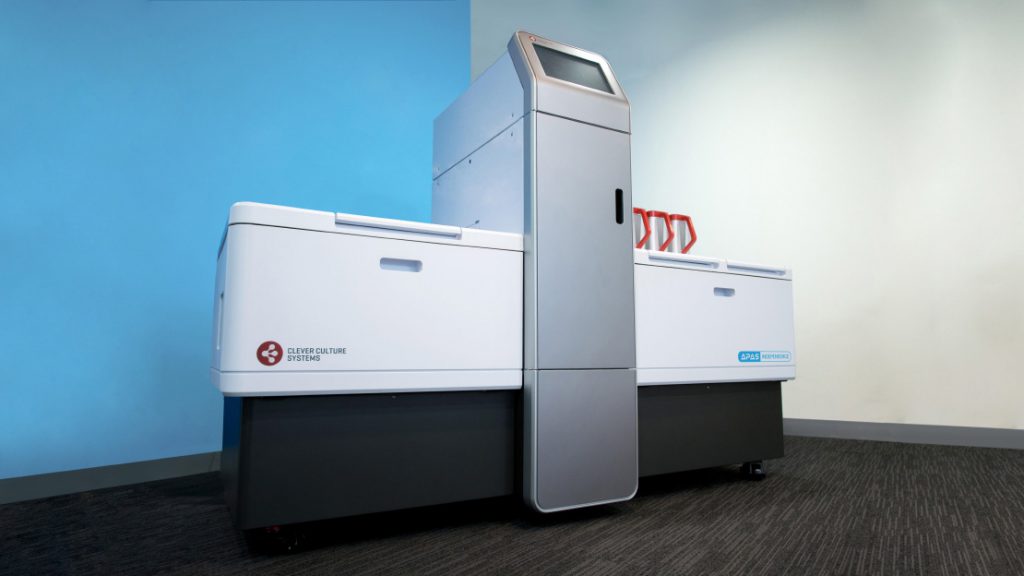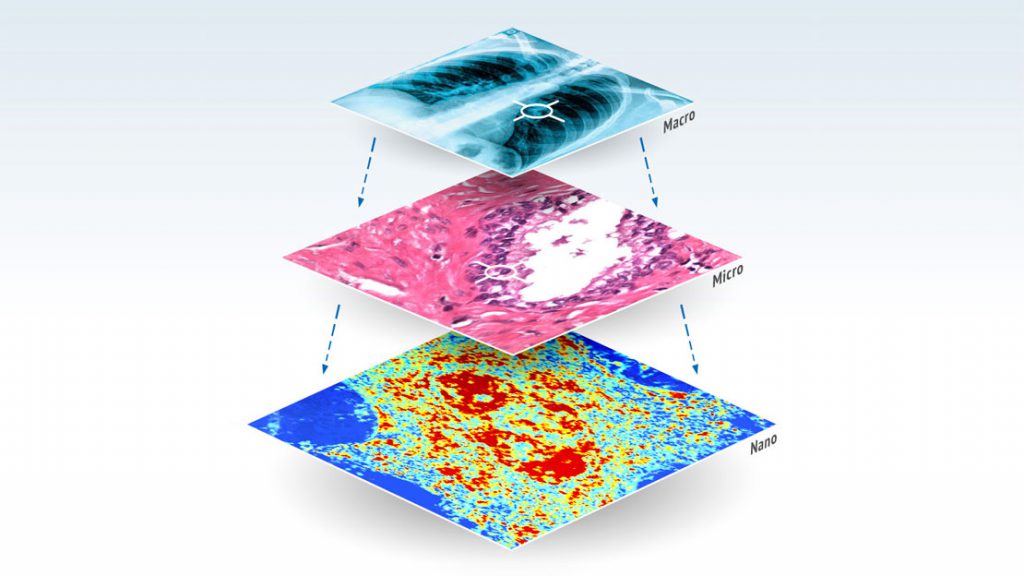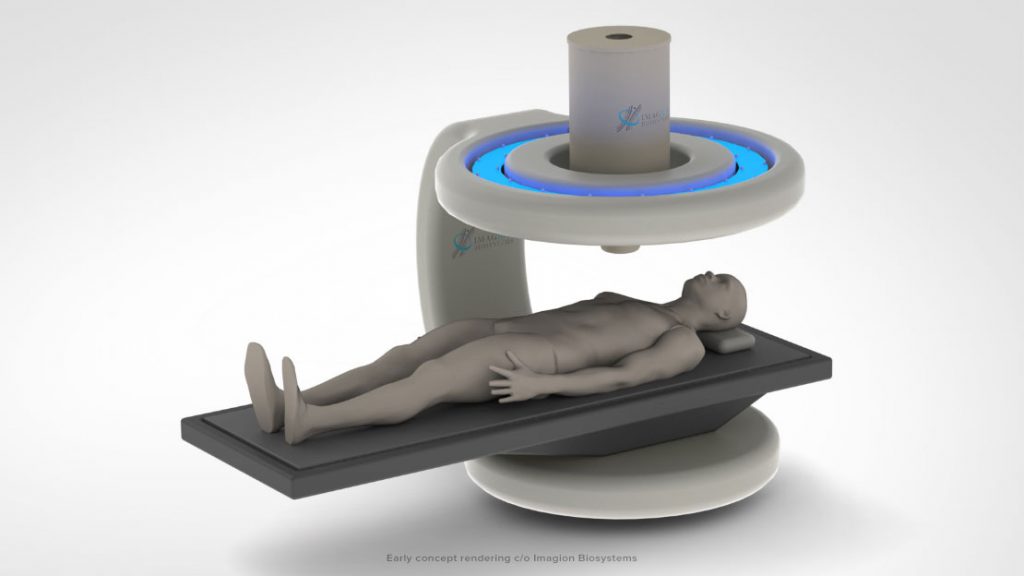
This month’s Association for Molecular Pathology (AMP) 2018 Annual Meeting & Expo focused on the field of precision medicine. Experts from across the molecular diagnostic world gathered in San Antonio, Texas, to exchange knowledge and ideas, with the ultimate aim of creating better patient outcomes.
The National Institutes of Health (NIH) defines precision medicine as “an approach for disease treatment and prevention that takes into account individual variability in genes, environment, and lifestyle for each person.”1
Scientific advances, particularly in genome sequencing, are allowing clinicians to analyze a person’s genetic makeup and tailor treatments to suit their needs. As AMP Program Committee Chair Dr Lynne V. Abruzzo said in her welcome address, the one-size-fits-all approach to patient diagnosis and treatment is becoming obsolete. Molecular professionals are leading the way in developing new technologies to improve patient care and outcomes across a wide range of medical specialties.2
Patient selection for cancer therapies
One of the areas where precision medicine is making a difference in healthcare is cancer diagnosis and treatment. Cancer is caused by the uncontrolled, abnormal growth of cells. This growth is driven by mutations – changes in DNA that specifically affect genes.3 For many patients, early and accurate diagnosis is the key for optimal treatment. Indeed, new treatment strategies, such as immunotherapies, require precise classification of the particular molecular subtypes.
A company making significant advances in this area is Personal Genome Diagnostics (PGDx). At AMP, the company launched the PGDx elio™ brand, communicating their commitment to developing regulated, comprehensive tissue-based and liquid biopsy genomic products for local molecular laboratories worldwide. Their products integrate optimized assay chemistry with automated bioinformatics, enabling standardized results. They featured their elio tissue complete and elio plasma resolve products, which are currently being used in clinical trials and are on the path for submission to regulatory bodies. Both have pan-cancer utility and a focus on clinically actionable variants, including TMB and MSI in tissue and MSI in plasma.
John Simmons, PhD, Director of Translational Science and Diagnostics at PGDx, said: “We’re focused on bringing these innovative technologies to patients globally by empowering clinicians with actionable information about a patient’s cancer that can change the course of clinical therapy and, ultimately, improve outcomes.”
Targeted treatments and immunotherapies for lung cancer
Treatments for lung cancer are becoming more complex, with certain novel therapeutics being restricted to specific histologic or molecular subtypes of lung cancer, thus requiring identification of specific genes and proteins in the tumor.
Checkpoint inhibitors, a type of immunotherapy, have become a particularly important tool for diagnosing and treating advanced lung cancer. This comes on the back of the 2018 Nobel Prize for Medicine being awarded to James P. Allison and Tasuku Honjo for their (separate) discovery of how to treat cancer by inhibiting proteins known to act as ‘brakes’ on the immune system. The treatments, often referred to as ‘immune checkpoint therapy’ have proved effective for several types of cancer, including lung cancer, renal cancer, lymphoma and melanoma.4
Pharmaceutical companies Merck and Bristol-Myers Squibb both had exhibits at AMP for immunotherapies that target various cancers including non-small cell lung cancer (NSCLC). Nivolumab (registered as OPDIVO by Bristol-Myers Squibb) has gained US Food and Drug Administration (FDA) approval for the treatment of advanced squamous and nonsquamous NSCLC if the disease has progressed after chemotherapy. Pembrolizumab (registered as KEYTRUDA by Merck) has been FDA-approved as the first treatment for some types of advanced NSCLC, and after chemotherapy in certain circumstances.5
Pathology Diagnostic Liaison staff
As treatments become more targeted, pharmaceutical companies are working even more closely with pathology healthcare providers. At AMP Bristol-Myers Squibb and Merck had Pathology Diagnostic Liaison (PDL) field staff at their booths to advise pathologists of their approved oncology products and the role of diagnostic testing for cancer biomarkers.
Summary
Precision medicine has the potential to offer targeted and more effective treatment for diseases such as cancer. Molecular testing is allowing oncologists to select patients for targeted immunotherapies, while pharmaceutical companies and researchers are developing novel therapeutics. It was fantastic to attend AMP 2018 and see the scientific and technological advances being made in this rapidly evolving field.
References
- The Precision Medicine Initiative Cohort Program – Building a Research Foundation for 21st Century Medicine. National Institutes of Health. September 17, 2015.
- Abruzzo, L V. A Message from the 2018 Program Committee Chair. AMP. 2018.
- Mukherjee, S. The Emperor of All Maladies: A Biography of Cancer. New York: Scribner, 2010.
- Press release: The Nobel Prize in Physiology or Medicine 2018. The Nobel Assembly at Karolinska Institutet. October 1, 2018.
- Hellman, M; West, H J. Management of advanced non-small cell lung cancer lacking a driver mutation: Immunotherapy. UpToDate. November 1, 2018.








